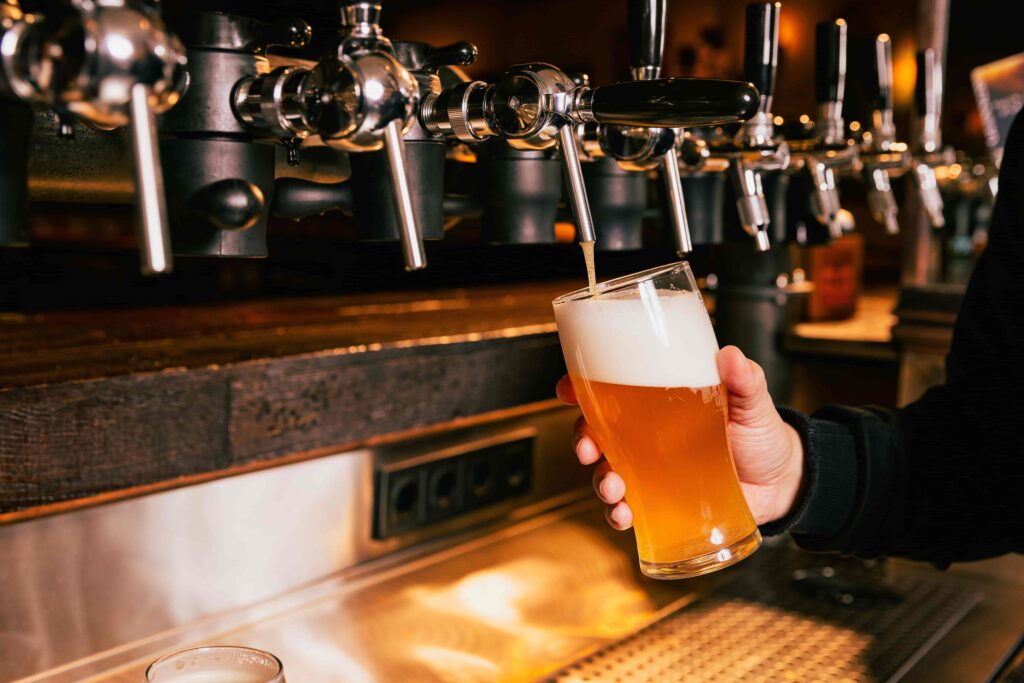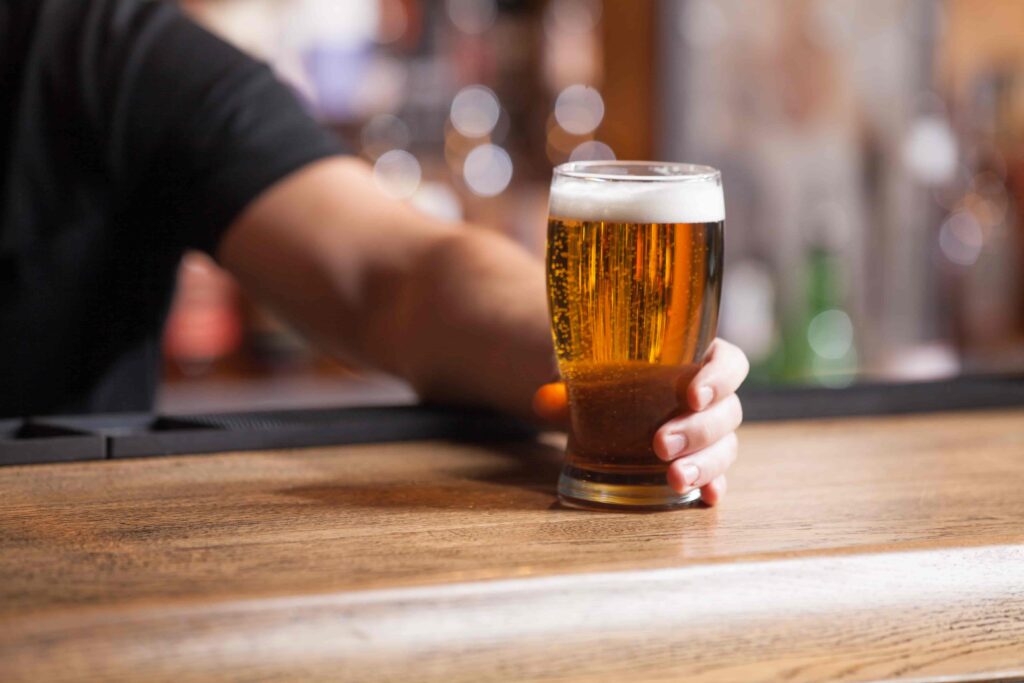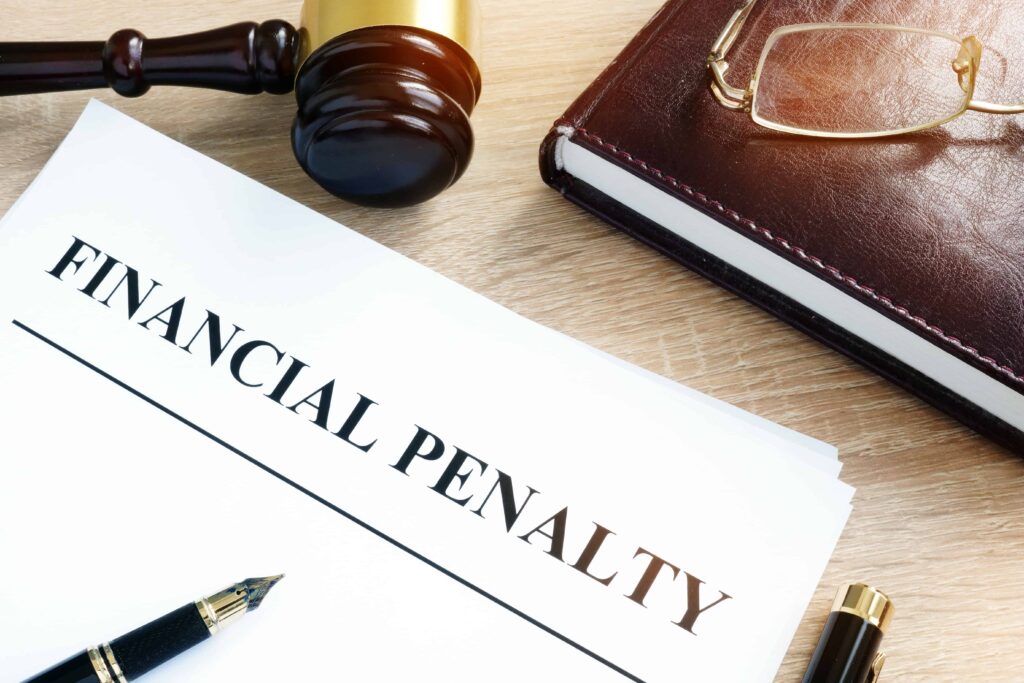Can Bars or Restaurants be held Liable for Overserving a Driver who Causes Injuries in a Drunk Driving Accident?
Can Bars or Restaurants be held Liable for Overserving a Driver who Causes Injuries in a Drunk Driving Accident?
Your night out in Newport Beach took a terrifying turn when a drunk driver hit your car on the way home. The driver had been drinking at a local bar or restaurant, clearly intoxicated before getting behind the wheel.
Now you’re dealing with serious injuries, medical bills, and the stress of wondering if the place that served them can be responsible. California’s dram shop laws let people injured by drunk drivers hold alcohol-serving establishments accountable if they keep serving someone who is clearly impaired.
Proving this takes careful investigation and legal guidance. For help exploring your options and seeing if the establishment might share responsibility, contact Bentley & More LLP for drunk driving injury support.
Key Takeaways: When Bars or Restaurants Can Be Held Responsible
- California Civil Code Section 1714 allows lawsuits against bars and restaurants that serve alcohol to obviously intoxicated persons who later cause injuries
- Proving dram shop liability requires evidence that establishments continued serving alcohol to visibly intoxicated patrons who showed clear signs of impairment
- Security camera footage, witness testimony, and server training records can provide key evidence in cases against alcohol-serving establishments
- Dram shop claims can provide additional compensation beyond drunk drivers’ insurance coverage, which may be insufficient for serious injury damages
- Newport Beach establishments serving alcohol must follow state regulations about identifying intoxication signs and cutting off impaired customers
- Insurance companies defending bars and restaurants often argue that patrons weren’t visibly intoxicated or that alcohol consumption occurred elsewhere
- Call a car accident lawyer to investigate potential dram shop liability before surveillance footage gets deleted and witness memories fade
California’s Dram Shop Liability Laws
California Civil Code Section 1714 provides the legal foundation for holding alcohol-serving establishments liable when they contribute to drunk driving accidents by overserving visibly intoxicated patrons. Unlike some states with specific dram shop statutes, California applies general negligence principles to situations where businesses fail to exercise reasonable care in alcohol service practices.
The law requires establishments to stop serving alcohol to patrons who show obvious signs of intoxication, such as slurred speech, unsteady walking, aggressive behavior, or difficulty maintaining coherent conversations. Businesses that continue serving alcohol to obviously impaired customers can face liability when those patrons later cause accidents that injure innocent parties.
Establishing dram shop liability requires proving that establishments knew or should have known that patrons were intoxicated based on visible signs that will be apparent to reasonable observers. This knowledge requirement means that subtle intoxication might not support liability claims, while obvious impairment creates stronger cases against serving establishments.
The legal theory behind dram shop liability recognizes that alcohol-serving businesses have both the opportunity and responsibility to prevent intoxicated patrons from driving by cutting off alcohol service and potentially arranging alternative transportation. When establishments prioritize profits over public safety by continuing to serve obviously drunk customers, they share responsibility for resulting accidents.
How to Spot Overservice Before a Drunk Driving Accident

A night out in Newport Beach should be about fun and relaxation, not worry or danger. Unfortunately, some evenings take a turn when intoxicated drivers leave bars or restaurants, putting everyone on the road at risk.
Recognizing Clear Signs of Intoxication
Proving that a Newport Beach establishment overserved a patron starts with the obvious signs of intoxication. Physical symptoms like unsteady walking, slurred speech, bloodshot eyes, and strong alcohol odors are all clear indicators that someone is impaired.
Behavioral cues are equally important—loud or disruptive conversations, aggressive behavior toward staff or other patrons, or difficulty completing simple tasks like paying for drinks indicate the person should not receive more alcohol.
Behavior Patterns That Raise Concerns
Some patrons display dangerous judgment by becoming argumentative, overly friendly with strangers, or belligerent. Others may withdraw, fall asleep at the bar, or need assistance walking. These patterns show that their ability to safely operate a vehicle is compromised.
Capturing Evidence of Overservice
Documenting overservice often relies on security footage from bars and restaurants. Video can show a patron’s condition worsening over time and whether staff continued to serve alcohol despite clear warning signs. Observing these patterns provides important evidence for cases where overservice contributed to drunk driving incidents.
If you or a loved one were affected by an accident caused by a drunk driver, gathering this information is an important step in seeking justice. Bentley & More LLP guides you through the process and properly considers these details.
Gathering Evidence When a Bar or Restaurant Overserved a Driver
Building successful dram shop cases requires comprehensive evidence gathering that proves establishments continued serving alcohol to visibly intoxicated patrons. Security camera footage is the most valuable evidence because it objectively documents patron behavior and server interactions throughout the evening.
Server training records can demonstrate whether establishments have properly educated their staff about identifying intoxication signs and following procedures for cutting off impaired customers. Establishments that fail to provide adequate training or don’t enforce alcohol service policies may face stronger liability claims when their patrons cause accidents.
Witness testimony from other customers, employees, or bystanders can provide evidence about patron behavior and establishment responses to obvious intoxication. Witnesses might recall specific incidents where patrons displayed clear impairment signs but continued receiving alcohol service.
Receipt records and credit card transactions can establish drinking patterns and total alcohol consumption at specific establishments. These records become particularly valuable when combined with time stamps that show how quickly patrons consumed large quantities of alcohol.
Professional testimony from alcohol service professionals can help establish industry standards for identifying intoxication and explain how reasonable establishments should respond when patrons become visibly impaired. These professionals can review evidence and provide opinions about whether establishments met their legal obligations.
How Newport Beach Businesses Are Held Accountable for Overserving

Newport Beach bars and restaurants serving alcohol must comply with California Department of Alcoholic Beverage Control regulations governing responsible alcohol service practices. These regulations require establishments to train staff to identify intoxication signs and implement policies that prevent overservice to impaired patrons.
The Responsible Beverage Service program provides guidelines for alcohol-serving establishments to recognize impairment, calculate patron consumption, and intervene when customers become intoxicated. Establishments that ignore these guidelines may face both regulatory penalties and civil liability when their patrons cause drunk driving accidents.
Local Newport Beach establishments often implement additional policies beyond state requirements, such as offering food service to slow alcohol absorption, providing transportation assistance for impaired patrons, or working with ride-sharing services to prevent drunk driving. However, these voluntary measures don’t eliminate liability when establishments continue serving obviously intoxicated customers.
Newport Beach bars and restaurants’ insurance policies typically include coverage for dram shop liability claims, though establishments often try to deny that overservice occurred or argue that patrons weren’t visibly intoxicated when they continued receiving alcohol.
How Establishments Fight Liability for Overserving
Bars and restaurants facing dram shop liability claims typically argue that patrons showed no visible signs of intoxication when served alcohol or that signs of impairment weren’t obvious enough to require stopping service. They may claim that patrons consumed alcohol elsewhere before arriving at their establishments or continued drinking after leaving.
Defense attorneys often argue that multiple establishments served alcohol to drunk drivers, attempting to divide liability among several businesses rather than accepting full responsibility for overservice. They might claim that most of the patrons’ alcohol consumption occurred at other locations.
Some establishments argue that their staff followed proper procedures and refused service when patrons appeared intoxicated, claiming that accidents resulted from alcohol consumed before arriving or after leaving their premises. They may produce employee testimony claiming that patrons seemed sober when they departed.
Insurance companies defending establishments frequently dispute the connection between overservice and accidents, arguing that drunk drivers would have consumed alcohol elsewhere if specific establishments had refused service. This causation argument attempts to minimize establishment liability by claiming that accidents were inevitable regardless of the establishment’s actions.
How Timing Impacts Evidence in Overservice Claims
Evidence in dram shop cases can disappear quickly if not preserved promptly after accidents. Security camera footage typically gets automatically deleted after 30 to 90 days unless establishments receive legal notices requiring preservation. This makes immediate legal action vital for protecting valuable evidence.
Employee schedules and staff memories provide important evidence about patron behavior and service decisions, but this information becomes less reliable as time passes and employees leave their positions. Early witness interviews often yield more detailed and accurate information about overservice incidents.
Credit card records and receipt information may be available for longer periods, but establishments sometimes claim that detailed transaction records are routinely destroyed after specific time periods. Prompt legal action ensures that financial records remain available to prove consumption patterns.
What Happens to Establishments That Serve Drivers Beyond the Limit

Newport Beach establishments liable for overserving intoxicated patrons may face regulatory consequences beyond civil liability. The California Department of Alcoholic Beverage Control can impose penalties, including fines, license suspensions, or revocations, for establishments that repeatedly violate alcohol service regulations.
These regulatory actions can significantly impact establishment operations and profitability, creating additional incentives for bars and restaurants to implement proper alcohol service training and policies. Establishments facing multiple complaints about overservice practices may receive increased regulatory scrutiny.
License consequences can be particularly severe for establishments with histories of overservice violations or failing to implement corrective measures after regulatory warnings. Some establishments may lose their alcohol licenses permanently if violations demonstrate ongoing disregard for public safety.
Considerations for Social Host Liability in Alcohol-Related Crashes
While commercial establishment liability represents the most common dram shop scenario, California law also recognizes social host liability in certain circumstances involving private parties who serve alcohol to intoxicated guests. These cases typically involve situations where hosts continue providing alcohol to visibly impaired guests who later cause accidents.
Social host liability generally requires similar proof elements as commercial dram shop cases, including evidence that hosts knew guests were intoxicated but continued serving alcohol. However, social hosts often have less insurance coverage than commercial establishments, potentially limiting recovery options.
Private parties hosting events in Newport Beach should be aware that serving alcohol to obviously intoxicated guests can create legal liability if those guests later cause drunk driving accidents. This liability extends beyond just providing alcohol to include situations where hosts fail to intervene when guests become dangerously impaired.
FAQs: Overserving and Drunk Driving Liability
How can I prove a Newport Beach bar overserved the drunk driver who hit me?
Evidence includes security camera footage showing patron behavior, witness testimony about obvious intoxication signs, and professional analysis of drinking patterns based on receipts and server interactions.
What if the drunk driver had consumed alcohol at multiple establishments before causing my accident?
Multiple establishments can share liability if they each contributed to the driver’s intoxication by continuing to serve alcohol despite visible impairment signs.
How long must I file a dram shop lawsuit against an establishment?
California’s statute of limitations gives you two years from the accident date, but evidence preservation requires immediate legal action since security footage gets deleted quickly.
Can establishments avoid liability by claiming their staff didn’t notice the patron was intoxicated?
Establishments remain liable if reasonable servers should have recognized obvious intoxication signs, regardless of whether staff claim they didn’t notice impairment.
What compensation can I recover from establishments that overserved the drunk driver?
Dram shop claims can provide compensation for medical expenses, lost earnings, pain and suffering, and other damages, often through commercial insurance coverage that exceeds drunk drivers’ personal policies.
Taking Action After Drunk Driving Accidents
Drunk driving accidents can leave victims with serious injuries, long medical treatments, and time away from work. The financial burden is often overwhelming, especially when the at-fault driver has limited insurance. Exploring dram shop liability can uncover additional ways to cover the full extent of losses, but it’s important to act quickly before crucial evidence is lost.
Bentley & More LLP helps drunk driving accident victims across Newport Beach and Orange County pursue compensation from all responsible parties, including bars or restaurants that overserve. We focus on preserving evidence and building strong claims to hold establishments accountable. Contact us at (949) 870-3800 or online to review your case and potential establishment liability.


